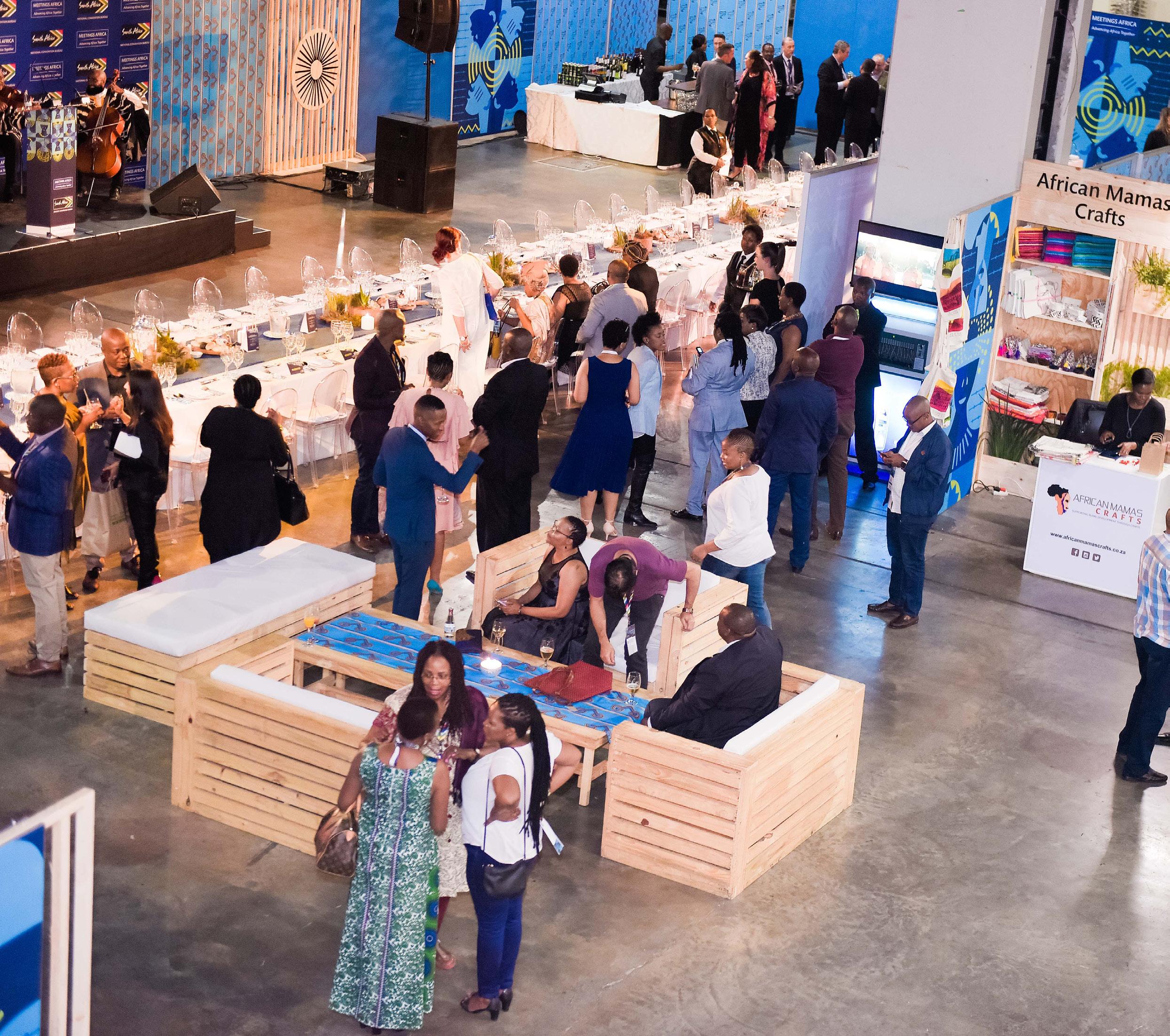INTERNATIONAL WOMEN’S DAY
Q&A with Minister of Tourism With International Women’s Day taking place on 8 March, Business Events Africa got an opportunity to ask the Minister of Tourism, Mmamoloko Kubayi-Ngubane, a few questions on what it means to be a woman in this sector.
What role do you see women currently playing in the tourism and business events sector in South Africa? The tourism industry is made up of 70 per cent women. However, they hold less than 40 per cent of all managerial positions, less than 20 per cent of general management roles, and between five and eight per cent of board positions. This is the situation we seek to change. We are putting programmes in place to ensure that women participation in the sector is more meaningful. One example of these programmes is an Executive Development Programme, which the Department of Tourism runs in partnership with one of our higher education institutions. Fifty women have graduated from the programme thus far, and the majority of them have been promoted to senior management levels in their various organisations. This programme will continue this year with an intake of about 20 women. One of these women is Ms Nokukhanya Sibisi, who before going through the programme was an assistant front office manager at Hilton hotel in Cape Town. We are delighted to say that Ms Sibisi has now been promoted to the position of guest relation manager for Hilton Worldwide Luxury Brand based in Dubai.
What are the main challenges that African women face in the travel industry? Women are concentrated in the lowest paid, lowest skilled sectors of the industry and carry out a large amount of unpaid work in family tourism businesses. The travel industry, like many other industries in South Africa, is
male-dominated. Because of the history of our country, the sector is white male-dominated. African women are newcomers into this industry, and as such they are faced with a number of challenges. Amongst others, these challenges include lack of appropriate training and education within the tourism industry pertaining to the travel industry that might adequately support their business ventures, lack of access to finance for their businesses and lack of access to the market. I must add that, at the same time, African women, including those in the global context, have increasingly become engaged in the business of tourism. Such women have become important actors in the tourism entrepreneurial arena, despite facing inequality in a perceived male-dominated environment. A recent study by the World Travel and Tourism Council found that although these women are making significant contributions to the growth of any given economy through their business initiatives, women still face a number of challenges that limit their effectiveness in the small business context.
What are some of the women success stories you have witnessed since becoming Minister of Tourism? The department has several youth training projects, amongst which is the chefs’ which has seen a majority of young people after training coming up with their own businesses for example in Limpopo and KwaZulu-Natal. This is one of our many success stories on our chef’s programme where our young women have come up with their own businesses. We provide them with further support and tools of trade.
A lot more work still needs to be done to ensure there are more women success stories in the sector. It is for this reason that we have taken a decision to be deliberate about women empowerment and this will include establishing an incubation programme for women businesses in the rural areas.
How does the South African travel market differ to the overseas market? South Africa has a unique travel market in that it has a diversity of tourist attractions ranging from a long coastline, biodiversity, natural attractions to richly diverse wildlife. South Africa is endowed with wonderful beaches and lush wine lands in the Western Cape, iconic landscapes such as the Table Mountain and Drakensberg Mountains, unspoiled wilderness and safaris, ten World Heritage Sites – one of which is the Cradle of Humankind renowned as the place where humankind originated – and a rich diversity of cultures. Continued on page 8
Business Events Africa March 2020 5

















